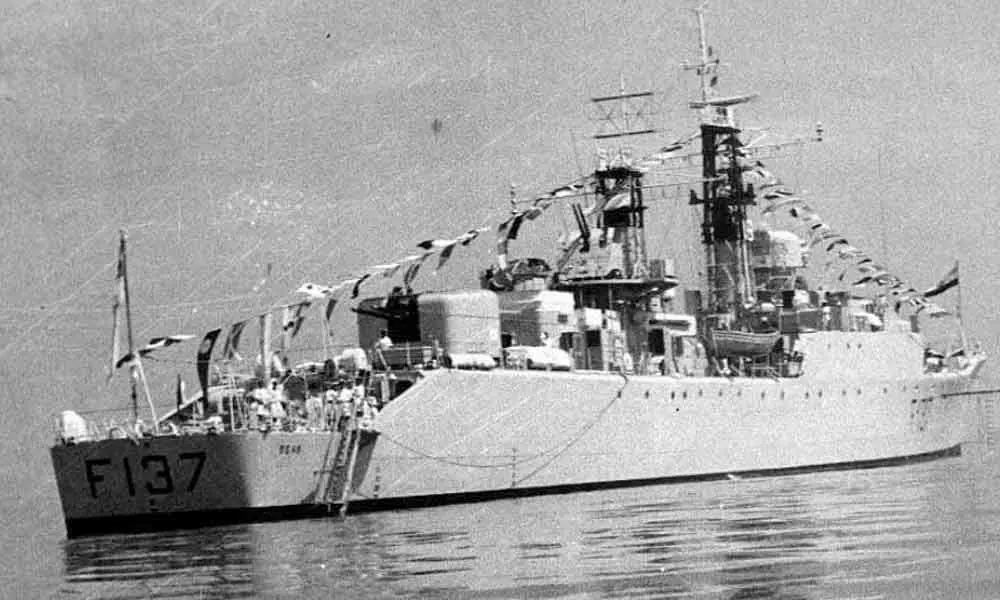How INS Beas thwarted Pakistan bid to smuggle out its 91,000 soldiers in 71 war

How INS Beas thwarted Pakistan bid to smuggle out its 91,000 soldiers in 71 war
As India celebrates Vijay Diwas it becomes imperative to recall the contribution of the Indian Navy in the 1971 India-Pakistan war, which frustrated Pakistan’s attempt to evacuate more than 91,000 of its soldiers, who ultimately surrendered to the Indian Army.
As India celebrates Vijay Diwas it becomes imperative to recall the contribution of the Indian Navy in the 1971 India-Pakistan war, which frustrated Pakistan's attempt to evacuate more than 91,000 of its soldiers, who ultimately surrendered to the Indian Army.
INS Beas, which during the war was operating in the Bay of Bengal with INS Vikrant and INS Brahmaputra, played a crucial role in the naval blockade of East Pakistan which was yet to become an independent Bangladesh.
Along with multiple responsibilities which Beas was tasked with, the boarding party had to search all the ships moving in and out. On December 9 and 10, 1971, she intercepted MV Azul Hasan Maru which was actually Anwar Baksh - a Pakistani merchant ship masquerading as a foreign vessel carrying Pakistani soldiers disguised as labourers.
Suspicious of the vessel, the boarding party led by Lieutenant Commander Raz Bazaz confirmed the apprehension and seized the merchant vessel.
Former Chief of Naval Staff, Admiral Laxminarayan Ramdas in command of INS Beas recalls, "We had many roles to play, one of which was the blockade of East Pakistan, which was yet to become Bangladesh then. All ships going in or out, especially the outward bound, were thoroughly searched by our boarding party. Here the merchant ship Anwar Baksh was masquerading as a foreign vessel with a strange crew. My second-in-command (2i/c) who had led the boarding party confirmed that the merchant vessel was carrying Pakistani soldiers and had to open fire to quieten them. It was a good catch and she was captured and later escorted to Calcutta."
Admiral Ramdas says though Pakistan had to stretch its resources, it had many allies including the United States of America and the Western Block.
"In all they were very well prepared," he remarks.
One of the most turning points of the war was the entry of the US 7th fleet led by the aircraft carrier USS enterprise that had entered the Bay of Bengal. India saw this as an attempt by the US to prop up a genocidal Pakistani military regime.
Beas was tasked to thwart the attempts of the USS Enterprise.
"The threat that the US posed was significant and INS BEAS was given the task to try and delay the USS Enterprise and the Carrier group which had entered the Bay at the Southern end. Needless to say the junior most ship the Beas had this onerous duty to perform! It was indeed a suicide mission but in war we moved on. Luckily for all of us our gallant Army finished their task of liberating Bangladesh very quickly," he tells The Hans India.
For his grit, determination and courage in the face of the war Ramdas was awarded the Vir Chakra.
















